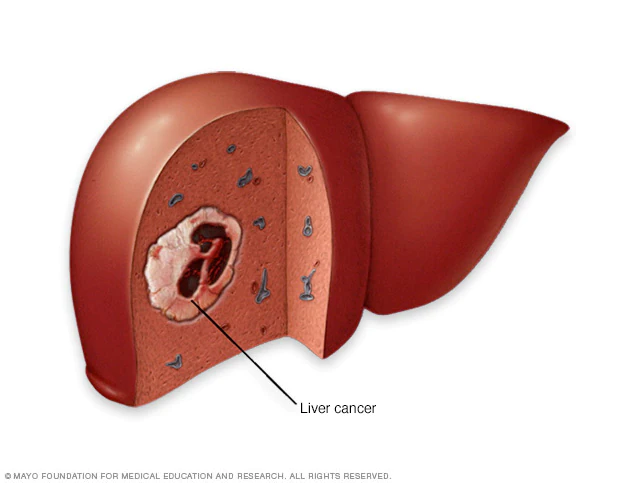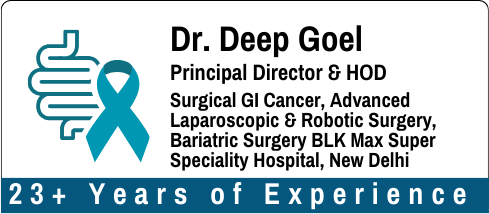Hepatocellular Carcinoma: What Are Its Symptoms, Causes And Treatments?

Hepatocellular Carcinoma (HCC) is a severe type of liver cancer that starts in liver cells, causing significant health problems worldwide.
Recent global numbers show a worrying increase in HCC cases, stressing the need to spread knowledge about it. The liver is a crucial organ for our well-being, but when HCC occurs, it risks the liver’s function.
In the world of liver health, it’s essential to understand HCC, especially as it tends to affect people aged 60 and older, with men being more prone to it.
This blog aims to talk about Hepatocellular Carcinoma, giving insights into how common it is, what factors increase the risk, and how to prevent it. By explaining HCC in simpler terms, we aim to help readers understand and make better choices for their liver health.
What Is Hepatocellular Carcinoma (HCC)?
Hepatocellular carcinoma is the most common form of liver cancer. It is a severe illness that can be life-threatening. If it is diagnosed early, it can be treated with surgery to remove the cancerous tumor or with a liver transplant. Other treatments can shrink the cancer, slow its growth, and relieve symptoms. Hepatocellular carcinoma is linked to cirrhosis of the liver and non-alcohol-related fatty liver disease (NAFLD).
Dr. Deep Goel specializes in addressing Hepatocellular Carcinoma (HCC), a significant form of liver cancer. He guides patients through understanding and managing HCC. His expertise ensures accessible insights into the prevalence, risks, and preventive measures related to HCC, offering valuable support in navigating this aspect of liver health.
What Are Its Symptoms and Causes?
There are many conditions with the same symptoms as hepatocellular carcinoma. Having one or more of these symptoms doesn’t mean you have hepatocellular carcinoma. But talk to your healthcare provider if you have these symptoms. They’ll identify and treat the condition that caused your symptoms. Potential hepatocellular symptoms include:
- You’re losing weight without trying
- You feel very full after a small meal or don’t have much appetite
- You’re nauseous and vomiting
- You notice a fullness or knot under your ribs on your right side. This might indicate your liver is enlarged
- You notice fullness under your ribs on your left side. This might be a sign your spleen is enlarged
- You have stomach pain or pain near your right shoulder blade
- Your stomach feels swollen as if it’s filling up with fluid
- Your skin itches
- Your eyes and skin are turning sallow or yellow. This might be a sign you have jaundice
Cirrhosis of the liver is the most common cause of hepatocellular carcinoma. Increasingly, healthcare providers are seeing hepatocellular carcinoma cases in people who have non-alcohol-related fatty liver disease (NAFLD). Some other medical conditions and activities increase your risk of developing hepatocellular carcinoma.
- Hepatitis B
- Hepatitis C
- Type 2 diabetes
- Smoking
- Having obesity
- Excessive alcohol consumption
If you have or have had any of these illnesses, talk to your healthcare provider about being screened for hepatocellular cancer.
Dr. Deep Goel emphasizes, “Detecting Hepatocellular Carcinoma early is crucial. Look out for symptoms like unexplained weight loss and abdominal pain. If you’ve had hepatitis or cirrhosis, your risk increases. Regular check-ups are key. If you notice anything unusual, don’t hesitate to consult. Timely intervention can make a significant difference in managing this form of liver cancer.”
What Are The Surgical Treatments For Hepatocellular Carcinoma?
The surgical treatments are hepatectomy and liver transplantation. During hepatectomy, surgeons remove a portion of the liver affected by tumors or diseases. The remaining healthy liver tissue is then connected, allowing the liver to continue functioning. In liver transplantation, a donor replaces a damaged liver with a healthy one. Surgeons carefully connect blood vessels and bile ducts to ensure proper functioning in the recipient.
Other treatments are:
- Ablation therapy: Your healthcare provider uses a special needle to burn your tumors
- Embolization therapy or chemoembolization therapy: Healthcare providers inject chemotherapy drugs into your liver’s main artery, which carries the drugs to your tumor. Then, they temporarily block your artery so the drugs stay in your tumor longer
- Targeted therapy: This treatment blocks the growth of cancer cells and limits damage to healthy cells by targeting the cancer cells’ genes
- Immunotherapy
- Radiation therapy
Dr. Goel explains, “When treating Hepatocellular Carcinoma, surgical options can be highly effective. Surgery to remove the tumor or a liver transplant may be considered. The goal is to eliminate the cancerous cells and restore liver function. The best approach depends on the individual case. It’s crucial to discuss with your healthcare team to determine the most suitable surgical treatment tailored to your situation.”
Anita Gupta, a patient of Dr. Deep’s, says, “Thanks to Dr. Goel, timely detection and treatment changed my HCC journey. Grateful for his expertise.”
Rajesh Singh, another patient of Dr. Deep shared, said, “Dr. Deep Goel’s approach made surgery less daunting. His guidance ensured a smooth recovery.”
What Is The Cost Of Hepatocellular Carcinoma Surgery In India?
In India, the cost of Hepatocellular Carcinoma (HCC) surgery varies, providing affordable treatment options. The approximate cost ranges from 5,00,000 INR to 15,00,000 INR, equivalent to approximately 6,700 USD to 20,000 USD. Several factors contribute to this variation:
- Hospital Reputation: Renowned hospitals may have higher costs.
- Treatment Approach: Surgical methods, like hepatectomy or transplantation, have different expenses.
- Geographical Location: Costs may vary between cities and regions.
- Doctor’s Expertise: Experienced surgeons may charge higher fees.
- Pre and Post-Operative Care: Inclusive packages cover various aspects.
Patients can choose based on their budget, medical needs, and the desired level of care.
Conclusion
In the pursuit of liver health, early detection and knowledge empower individuals against Hepatocellular Carcinoma. Regular screenings and recognizing symptoms prompt timely intervention, offering hope through diverse treatments. Stay informed, consult your healthcare provider, and take charge of your liver health journey.
FAQs
Is Hepatocellular Carcinoma curable?
Early detection allows for effective treatment, improving outcomes.
Can non-alcohol-related fatty liver disease lead to HCC?
Yes, individuals with NAFLD are increasingly at risk of developing HCC.
Are there alternative treatments besides surgery for HCC?
Alternatives include ablation therapy, embolization therapy, targeted therapy, immunotherapy, and radiation therapy.
What role does obesity play in HCC development?
Obesity increases the risk of developing Hepatocellular Carcinoma.
Does the cost of HCC surgery in India include post-operative care?
Many packages include pre and post-operative care, contributing to cost variations.
Read more : Which Foods Help To Maintain A Healthy Liver?

